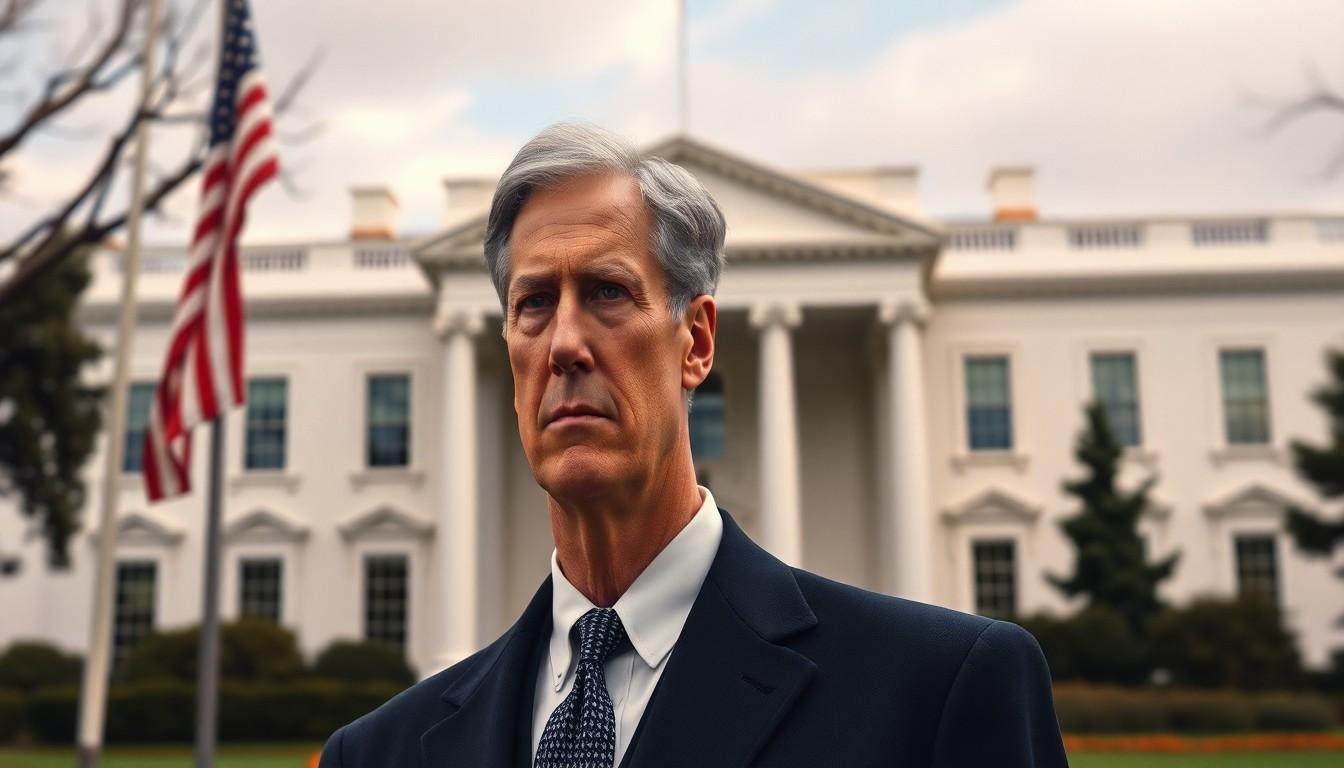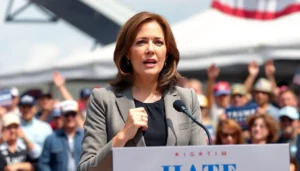Moral diplomacy might sound like a fancy term reserved for diplomats in tuxedos, but it’s actually a straightforward concept with a powerful punch. Imagine a world where countries don’t just flex their military muscles or throw money around but instead use their moral compass to guide their international relationships. Intrigued? You should be!
This approach emphasizes ethical considerations over mere self-interest, aiming to promote human rights and democracy. It’s like choosing to share your toys on the playground instead of hogging them all—everyone benefits, and you look like the hero. So, let’s dive into this intriguing concept and uncover how moral diplomacy shapes global interactions, one ethical decision at a time.
Table of Contents
ToggleMoral Diplomacy Simple Definition
Moral diplomacy refers to a foreign policy approach centered on ethical principles. This method signifies a shift from coercive tactics to promoting human rights and democratic values in international relations. Ethical considerations play a crucial role in guiding diplomatic decisions and interactions.
Countries employing moral diplomacy focus on fostering global cooperation based on shared values. This approach enhances diplomatic relations by encouraging nations to act in morally responsible ways. Transparency becomes vital as nations openly discuss their values and intentions.
Promoting democracy emerges as a key element in moral diplomacy. Nations advocate for democratic governance and support movements that align with these principles. The belief that sustainable peace arises from democratic societies drives this initiative.
Human rights protection also stands at the forefront of moral diplomacy. Nations committed to this philosophy emphasize the importance of safeguarding fundamental human rights across the globe. In instances where rights violations occur, countries often take a stand against such actions, advocating for accountability and justice.
Overall, moral diplomacy aims to create a more peaceful and just world through ethical engagement. Countries choosing this path seek to inspire others to join in promoting human rights and democratic ideals. By prioritizing these values, moral diplomacy fosters a collaborative international landscape.
Historical Context

Moral diplomacy emerged as a distinct approach in international relations during the early 20th century. This shift focused on ethical principles rather than traditional power dynamics.
Origins of Moral Diplomacy
Moral diplomacy found its roots during the presidency of Woodrow Wilson. He emphasized the importance of ethics in foreign policy, advocating for democracy and human rights. His approach aimed to reshape America’s role on the global stage by promoting moral standards. Events such as World War I highlighted the need for this transformation, leading to an increased emphasis on diplomatic negotiations driven by ethical considerations. Wilson believed that promoting democratic governance would contribute to global peace and stability.
Key Figures in Moral Diplomacy
Several influential figures championed moral diplomacy alongside Wilson. Eleanor Roosevelt played a crucial role in advocating for human rights after World War II. Her efforts contributed significantly to the formation of the Universal Declaration of Human Rights in 1948. Another important figure was George H.W. Bush, who prioritized human rights in his foreign policy during the late 20th century. His administration’s initiatives demonstrated how ethical engagement could affect diplomatic relations. These key individuals illustrated the enduring impact of moral diplomacy on global affairs, leaving a legacy of prioritizing ethics in international relations.
Principles of Moral Diplomacy
Moral diplomacy revolves around core principles that guide ethical foreign policy practices. These principles focus on promoting human rights and advocating for democratic governance.
Promotion of Human Rights
Countries practicing moral diplomacy emphasize the promotion of human rights globally. They actively condemn human rights violations and offer support for those affected. Advocacy for accountability stands at the forefront of their actions. Efforts include collaborating with international organizations to establish and enforce human rights standards. Nations adopting this approach strive to create a world where individual liberties are respected and protected. With a commitment to justice, they inspire other countries to follow suit, fostering a collective responsibility towards human dignity.
Advocacy for Democratic Governance
Advocacy for democratic governance forms another key principle of moral diplomacy. Nations prioritize supporting democratic movements and institutions worldwide. Countries promote fair elections and the rule of law to ensure people have a voice. Diplomatic relations thrive on partnerships with nations sharing democratic values. By encouraging democratic practices, they foster stability and peace in the international arena. This approach reflects the understanding that democracies tend to cultivate better respect for human rights and create a safer global environment.
Comparison with Other Diplomacy Types
Moral diplomacy contrasts sharply with other diplomacy types, emphasizing ethical principles over traditional tactics.
Moral Diplomacy vs. Realist Diplomacy
Moral diplomacy prioritizes human rights and democratic values. In contrast, realist diplomacy often focuses on state interests and power dynamics, sometimes neglecting ethical considerations. Realists view international relations through a pragmatic lens, where a nation’s survival and economic gain take precedence over moral obligations. This approach can lead to alliances with autocratic regimes if beneficial. Conversely, moral diplomacy champions human dignity, advocating for oppressed populations and supporting democratic movements. Nations practicing moral diplomacy strive to build long-lasting relationships based on trust and shared values, ultimately fostering a more stable international system.
Moral Diplomacy vs. Economic Diplomacy
Economic diplomacy centers on pursuing trade agreements and financial interests between nations. Moral diplomacy stands apart by integrating ethical objectives into international relations. While economic diplomacy seeks to maximize economic benefits, it may overlook human rights implications. Moral diplomats advocate for responsible business practices, promoting human dignity and equity alongside economic growth. Countries engaging in moral diplomacy aim to balance economic interests with ethical commitments, reinforcing the idea that prosperity should not undermine human rights. Ethical engagements can lead to sustainable partnerships that prioritize holistic development over mere profit.
Contemporary Applications
Moral diplomacy remains relevant in today’s international relations landscape. Current applications demonstrate its significance in promoting ethical foreign policies.
Case Studies in Modern Moral Diplomacy
Countries like Canada exemplify moral diplomacy through their commitment to human rights. Canada’s response to Myanmar’s Rohingya crisis highlights this approach, as they imposed sanctions on Myanmar’s military and provided asylum to refugees. Similarly, New Zealand’s foreign policy emphasizes inclusivity and support for oppressed populations, showcasing a dedication to ethical governance. These real-world examples illustrate the potential for moral diplomacy to shape positive international relations and encourage cooperative efforts towards human rights.
Challenges and Criticisms
Despite its appeal, moral diplomacy faces notable challenges. Critics argue that its implementation often lacks consistency, as nations may prioritize strategic interests over ethical values. Instances arise where countries selectively apply moral standards. Additionally, some view moral diplomacy as a facade for political motives, undermining its credibility. Economic dependencies can complicate moral stances. Balancing trade relationships with ethical responsibilities remains a challenge, leading to skepticism about the sincerity of moral diplomacy efforts.
Moral diplomacy represents a transformative approach to international relations that emphasizes ethical principles over traditional power dynamics. By prioritizing human rights and democratic values, it fosters cooperation and understanding among nations. The examples of countries like Canada and New Zealand illustrate its practical applications and potential for positive impact. While challenges exist in maintaining consistency and sincerity, the core idea of moral diplomacy remains vital in shaping a more just and peaceful world. As nations navigate the complexities of global interactions, the commitment to ethical engagement will continue to play a crucial role in promoting stability and cooperation on the international stage.





